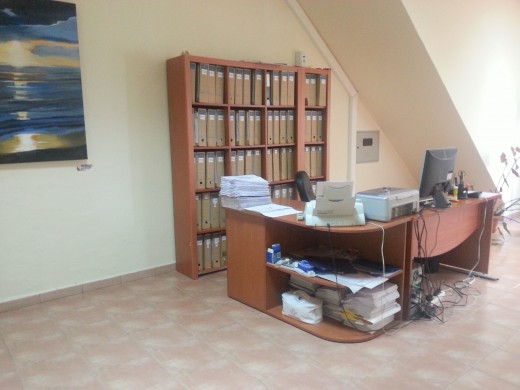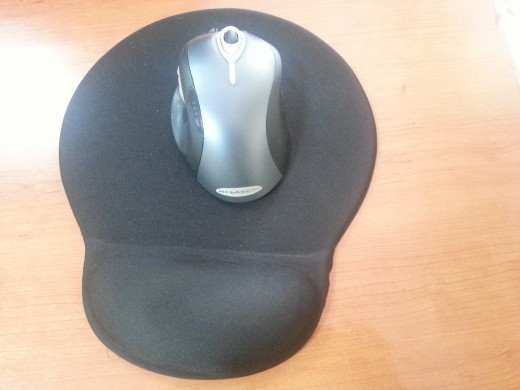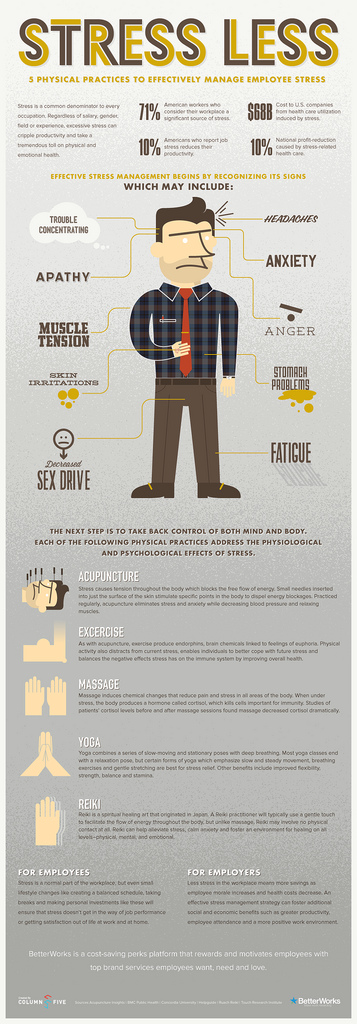Main health risks of sedentary jobs

Work is, nowadays, something very different than it was 30 or 40 years ago. While before, for most people, working meant some kind of physical activity, nowadays it’s mostly about sitting down.
Now, we may think that is great, but it’s actually not that healthy. While sitting down has nothing to do with actual rest, since our minds are actually working quite hard, this kind of work also comes with a lot of problems, especially to our general health and probably we won’t realize these problems until it is too late.
We tend to overlook the back pain, the fact we are squinting as we look to the computer screen, we forget what time it is and work for just one extra hour or two just to finish our task at hand, we forget it’s time to have lunch or just to have coffee to take our mind off things. And one day we wake up and find out we can’t sit down for 30 minutes without actually being in physical agony, because of our back pain or that we have arrhythmia or ulcers caused from stress. I could go on, but actually I’m not trying to scare anyone, I just want to put some things in perspective.
Most jobs today mean that we sit down in front of a computer for 1/3 of the day. If we think about it, it’s a bit like being imprisoned. There we sit, looking at the same screen for hours, doing the same movements again and again, a static posture, sometimes we don’t even have a window in sight so we can look outside, see the view. And forget about getting up and stretching our legs for a minute, there is simply no time.
Now, it’s not that before things were easy, it’s not that the conditions provided by employers were better, on the contrary.
But this day and age, with all the information and equipment available, there is simply no excuse to overlook certain things, there is no excuse to just let the years go by and not take care of our health.
It’s not that hard to change our work habits in order to make our work and work place healthier for us. It’s not that hard, it’s not that demanding. We simply have to take care of ourselves. So, let’s find out how.
Sedentary jobs' health problems
First we need to look around our work place. What do we have there? Well, most probably a desk, a chair, a computer, a printer, a phone, stationery and that’s it.
Then we need to consider our work habits. What do we do? We get to work in the morning, with our cup of coffee, sit down, turn on our computer and then just sit there in front of the computer for hours, mostly looking at the screen, typing away, some mouse movement, pick up the phone, talk for a while, look around. Maybe at some point we have a meeting, so we sit down somewhere other than our office. We may have a cup of coffee or a tea or perhaps we don’t even have time for that. In the first case, most likely, we will just drink our tea or coffee in two or three minutes and get on with what we were doing.
So, let’s look at what’s wrong with this picture:
- Sitting down: it’s a static posture; many times also implies a bad posture;
- Staring at the computer: long hours before a computer screen damage our sight;
- Typing/working with the mouse: repetitive movements;
- Long hours in an office: lack of solar exposure; stress; lack of human interaction.
These may not seem much, but in fact they are, they contribute to a bad quality of life, not just in those years when our body and mind can take everything is thrown at us, but also, and most especially, afterwards when our health starts deteriorating. That is why we need to rethink our work habits today and change them.
Understanding sedentary work related main health problems
POSTURE
Sitting down is a static posture, as I mentioned before, and we sit down for most of the day, which means that there is little blood flow being sent to the muscles. At the same time we are demanding our body to sit still, many times without any support, resisting gravity, which demands much more from the muscles than what we may assume at first, since it demands the muscles to contract. When this happens for a long period of time, muscular pressure rises, which compresses blood vessels and which obstructs the flood of blood through the muscle. Then lactic acid starts accumulating, causing muscular fatigue and pain. And because we keep adopting this posture day after day for years we never allow our muscles enough time to recover from the contraction and its effects. In time parts of the muscles never recover at all, some muscles suffer permanent damage or even death of some cells. The permanent damages to our muscles consequently cause us to adopt bad postures that will further exacerbate the problem.
But bad posture is not just caused by static posture, it is rooted in our way of sitting down, which may seem more comfortable at times, but that will eventually lead to further problems or can even have to do with the components of your workstation. How many times have you noticed that you are sitting down with your back slightly hunched? Why is that? Is it a habit of yours? Is it because of your chair and desk?
Now, a static and bad posture will lead to back, neck and shoulder pain, muscle damage, spinal distortions and so many others.
EYESIGHT
Most of us has bad eyesight. Most of us, actually, don’t care and think it comes with the territory, after all not only we spend all day at our workplace in front of a computer, but we also come home to one, so can we really complain?
Well, yes, we can. And once we get to that stage when we are doing our daughter a bead necklace and we simply can not find the hole in the bead, then we will probably start wondering what we have been doing with our eyes…
Staring at anything for a long time will cause strain and fatigue to our eyes, it’s even worse when it is a computer, with the light and the constant, yet imperceptible flashing.
If you had a previous eye condition, it’s even worse, so what can you expect, but the deterioration of your eyesight? Visual stress, visual fatigue and strain, burning, itching eyes, blurred visions at times and headaches, that is probably you are getting from those long hours in front of a computer.
But here is the thing: can we really live without computers nowadays? And do we want to live without them? What is there to do?
REPETITIVE MOVEMENTS
We spend our time basically between typing something or working with the mouse, especially if we are using programs such as AutoCad, more likely we will spend our days going back and forth with the mouse, clicking here and there and then typing something in the command line. These repetitive movements, obviously, cause injuries. But again we ask: what can we do?
And we just go on until some day we find we have tendinitis or carpal tunnel syndrome or some other repetitive strain injury. These sort of injuries cause not only pain, which sometimes makes it very hard, if not impossible to work, but also numbness and edema in the affected area. The pain, the edema and the numbness can be caused by inflammation, nerve compression and others.
LONG HOURS IN THE OFFICE
All day long spent in an office, in some cases we have windows, others no windows in sight, so we work under artificial light, we seldom go outside during the day, apart from our lunch break and we are constantly being pushed because of deadlines. There are deadlines everywhere these days and goals to be accomplished and competitors to be taken down.
Well, on a softer note, the first thing that pops out is that we simply don’t get enough solar exposure. Seems strange? Not important and who cares? Well, it is actually very important. You see, sun light actually causes chemical reactions in our body, essential chemical reactions, which we need, one of them is triggering the production of Vitamin D, a vitamin that is responsible for maintaining the levels of calcium and phosphorus in our body.
But most of all we have stress to worry about when we work in an office, there is simply nowhere to go, mostly people just sit there, working, the talk is limited to a minimum and the breaks also. The environment is competitive, not allowing anybody to relax and the demands for work completion in a certain period of time or the need to reach a certain goal make up for a high level of stress.
What about stress? We can’t see it, measure it… but we can almost smell it, I would say, it comes mixed with a sort of fear… And here it is about stress, we can’t pinpoint exactly what’s wrong, but there is a lot wrong… it’s the constant headache and the way our heart just starts racing for no reason whatsoever and how we just can’t fall asleep and turn and toss in our beds and how food tastes to nothing…
Stress is a big deal and should be addressed as such, stress can lead to heart attacks, panic attacks, ulcers, high blood pressure and, of course, depression.
SOLUTIONS, SOLUTIONS
Let’s start with posture.
For one thing posture has a lot to do with our habits. How many times have we heard our mothers say to stand straight? And did we listen? Probably not.
So, first we need to change our ways, we need to remind ourselves we need to have a correct posture, try to remember to seat straight, to rest our back on the back of the chair, don’t put our legs in funny positions (this one is for me).
Then, we need to look around our office place and understand what is influencing our posture, what is okay and what is wrong. How is your chair? Comfortable? Can you touch the ground with your feet or do they just dangle there? Do you have enough room? What about your computer screen? Too high? Too low?
The best is to use an Evaluation Checklist of our workplace to understand if and what we need to change about your workstation.
Once we find out what is wrong, we can think of alternatives. For instance, we may need a different type of chair or our desk may be too high. This sort of checklist will not only help with items that affect our posture, but also our eyesight, since it will also focus on what sort of lighting do we have and if it is enough, etc. The equipment in our workstation must meet our particular needs, which means that what is good for one person may not be for the other and we must also always think of getting ergonomic equipment, which is equipment that was thought of to meet our needs in the workplace, by fitting the workplace to us, instead of the other way around.
Finally, no amount of ergonomic equipment will correct a static posture, so we have to move around.
From time to time we need to get up, go to the window, look around for a bit, go to the bathroom, go outside and buy ourselves a cup of coffee. Remember we cannot just sit there. A good idea is to set an alarm every 30 or 60 minutes and, even if it is for just 2 or 3 minutes, move.
There are some interesting software programs designed to remind us to move and that show some basic gymnastics exercises we may do at work. Just to give an example, Off4fit is one of them. These programs work on the background of our computer, while we are working and when it’s time for a break the alarm goes off and we are reminded we need some exercise and given some examples of exercises we can do. Another excellent idea would be to convince our employer to put a work gymnastics program in place, but not many employers would probably be interested.
So, regarding posture, let’s recap:
- Remember to correct posture;
- Use an evaluation list to find to evaluate workstation;
- Change to ergonomic equipment that is adapted to you;
- Remember to move and stretch every now and then;
- Use a work gymnastics software.
To take care of our eyesight we need to make sure, first of all, that we have proper lighting in our workstation, it’s not just a matter of having enough light, but also if it is properly directed.
Using a glare screen that can be attached to our monitor to reduce glare and checking our viewing settings is a must do. Also, we can't forget to visit an optometrist every year for a check up and, if necessary, to use computer glasses.
Finally, follow the 20-20-20 rule: every 20 minutes look for 20 seconds to something that is 20 feet (6 meters) away. It’s important to rest our eyes from time to time, so even if we can’t just get up from your station, we can't forget to just rest our eyes looking at something other than the computer screen for a while.

Now, when it comes to repetitive movement and its consequences it’s a little harder to deal with, because the fact is that probably we can’t stop doing whatever repetitive movement we are doing, that is causing your problem and the question is that stopping is probably the only thing that solves our problem.
But since we can’t stop, here is what we can do:
- Take some breaks and – as in the posture issues – do some exercises, stretch our arms, our fingers, rotate our wrists;
- Make sure we have the right equipment, choose an ergonomic keyboard, mouse and get some gel resting pads for our wrists, there are some great ones to use for instance with the mouse, but also with the keyboard.
Most likely you have some affliction cause by repetitive movement by now, so you can putting some ice wherever it hurts, but also doing massages and some physical therapy should also relieve the symptoms.

Last, but not least, stress. Stress has a lot to do with our state of mind, it’s actually a battle with ourselves. Even though a lot of it comes from what others do to us, the demands of the work, of the employer, the competition with colleagues, and so many other factors the question is that it is how we handle all that, that makes a difference.
Obviously, easier said, than done, but in any case we owe it to ourselves to try to change.
It’s important to be competitive, it’s important to make something of ourselves, it’s important our company is the best, it’s important to be a part of it, but it is also important to go home to our family at the end of the day and to have the rest and peace of mind to sit down with them and enjoy their company, as opposed to just getting angry at anything any of them does or just stay on the phone or computer half of the night.
Life goes by too quickly and we simply don’t realize it, our children grow up so quickly and we never get to enjoy their company, we are too busy making money to give them what we want and maybe we miss the point, because most of all they want some love and care and someone to talk about whatever scares them or whatever they just don’t understand.
And then we let work and numbers and money overwhelm us, we literally let stress take the better of us and with that comes heart disease and headaches and ulcers and… and really what do we enjoy then? Most of all, we don’t seem to realize that actually, literally, stress can kill us and then there is no more work, no more money, no more competition and also no more mornings playing with our kids in bed, no more movie night, no more laughter. And I really know what I’m talking about here, since I lost my father when I was 6 six years old, and that had a lot to with what?… work… stress… heart attack…
So, no more excuses, something has to change, it comes from within and here is what I think about it: do your very best at work, but…
- Nothing is as bad as it seems… step away, wait, you will think of something and some things have a way of sorting themselves;
- If there is nothing you can do about it, stop worrying;
- Think that if your health fails you, you won’t be fit to work anyway and what good will that do to anyone, you and your employer alike, so first think about your health;
- Don’t work around the clock, when it’s time to leave, leave;
- Make sure you have your days off, make sure you have some fun, relax;
- Work with your colleagues as a team, don’t try to do everything yourself;
- It’s great if you get that promotion, but if you don’t it’s not the end of the world;
- Surround yourself with good people, let the others go, and do something for those good people, after all that’s what we are here for;
- And finally, get some sleep.
Wrapping it up...
What may seem easier, calmer, more relaxed, can be just the opposite. Working in an office is not exactly what it seems, it can damage our health, it can actually ruin us and we may not even notice for a while what is going on.
The consequences of such simple things as staring at a computer screen for hours or sitting down or feeling stressed everyday, can be much more than one could anticipate and it is not just something to be considered by the employee, it will not affect just that person, but actually the whole company. It has disastrous economical consequences for a company. After all, how much is the cost to train properly an employee? How can his experience be measured? Or the level of an employee's commitment to a company?
It is smart to bet in preventing the risks of sedentary jobs... Working in front of a computer may be more dangerous than one would suppose...
So, let's do the smart thing... take care of ourselves... take care of the employees... and, of course, relax and enjoy life a bit more!
Feedback
Don’t forget to leave me your comment and vote on the hub.
For more information check out my profile and stop by my other hubs.
And if you enjoyed, maybe you can also join us here at Hubpages, it’s fun and free and you can click here.
© Copyright Sep 28 2012 / Algarveview.hubpages.com. To use part or the whole article you must first get written permission from the author. Feel free, nonetheless, to use an intro of the hub with a link to the article here on hubpages for the rest of the article.
© 2012 Joana e Bruno




